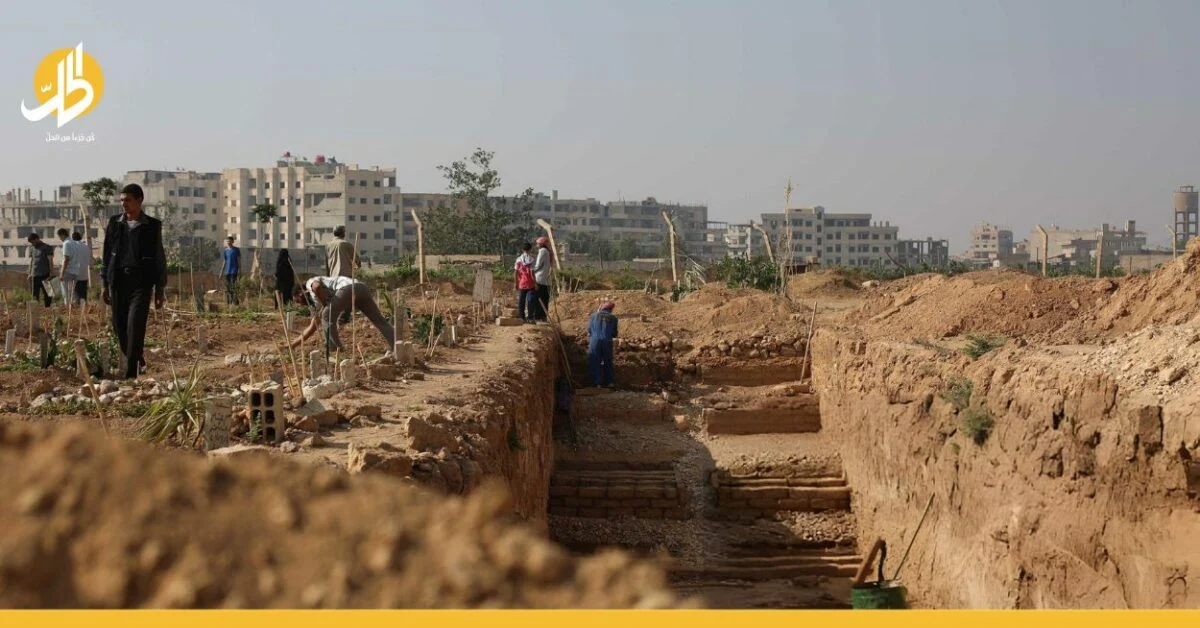In a nation ravaged by prolonged war and conflict, death has emerged as one of the foremost challenges confronting Syrians, impacting them not just psychologically and socially, but also logistically and organizationally.
With the death toll mounting due to years of conflict, cemeteries in Syria are now overwhelmed and disordered, prompting certain officials to explore potential solutions, notably the concept of “tiered burials.”
Yet, this proposal has not been universally embraced, triggering a profound debate about its legality and religious legitimacy in a country where religion and belief systems constitute integral components of its social fabric.
Solving the crisis of overcrowding the dead
In response to the burial space crisis in the capital, Damascus, the city governorate has implemented a measure known as “tiered graves.” Initially, officials began expanding graves vertically to two levels, but due to ongoing space shortages, they eventually had to increase this to three levels.
This scarcity has given rise to a black market for grave sales, with prices exceeding 100 million Syrian pounds (US$7,000) per grave. Additionally, disputes between families have arisen over ownership of existing graves.
Despite considerable controversy, including concerns about disrespecting the deceased, the Damascus governorate has affirmed that the tiered burial method will only be applied to graves where individuals have been interred for at least five years, ensuring adequate spacing between remains.
Horror of the Grave
The concept of “guest dead” instill significant apprehension among the residents of Damascus, who fear potential posthumous difficulties and complications if they are unable to secure graves while they are alive. Last year, the number of deaths in Damascus governorate exceeded 7,000 cases within the city, averaging 20 deaths per day. In contrast, there are only 160,000 graves available across 30 cemeteries in the area, with a mere 4,000 being tiered graves.
Despite the presence of the nearly free Najha cemetery south of Damascus, the preference of locals to bury their deceased within the city has led to the emergence of a lucrative black market, where graves are sold at exorbitant prices to affluent families. Old graves, inaccessible to visitors, are targeted for sale on this illicit market. Tombstones are vandalized, and original owner details are erased before being unlawfully sold to new occupants.
This article was translated and edited by The Syrian Observer. The Syrian Observer has not verified the content of this story. Responsibility for the information and views set out in this article lies entirely with the author.


